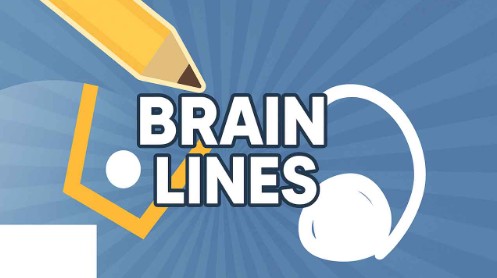Brain Lines isn’t about speed. It’s about thinking one step ahead. Each level gives a different problem — maybe a ball that won’t roll the right way or a block that needs balance. The only tool is your line. Draw it, and the game’s physics will decide if your plan works or fails.

Every line follows gravity, friction, and motion. The challenge lies in predicting what happens next. Some puzzles look simple, but one misplaced stroke can ruin everything. The clever part is how each level feels like a mix of art and logic — more thinking, less guessing.
Draw with the mouse to interact with the scene.
Observe how each shape moves before you act again.
Restart anytime — no penalty for experimenting.
The goal is always the same: solve the puzzle using as few strokes as possible.
As you move through the stages, new mechanics appear — ramps, hinges, or floating objects — each adding a new layer of strategy. The game rewards precision, not random drawing.
Start small. Don’t overdraw; short lines are easier to control.
Use gravity. Let motion help instead of fighting it.
Adjust on failure. A failed idea often shows what will work next.
Focus on timing. Some puzzles depend on when you draw, not just where.
Yes, once unlocked, later stages can be accessed without replaying everything.
Solve puzzles quickly and use fewer strokes to reach top scores.
No. Each puzzle can be solved in many ways, depending on how you draw.
If you enjoy Brain Lines, try Thief Puzzle — another logic-based challenge — or the classic Tetris, a timeless test of shape alignment and focus.